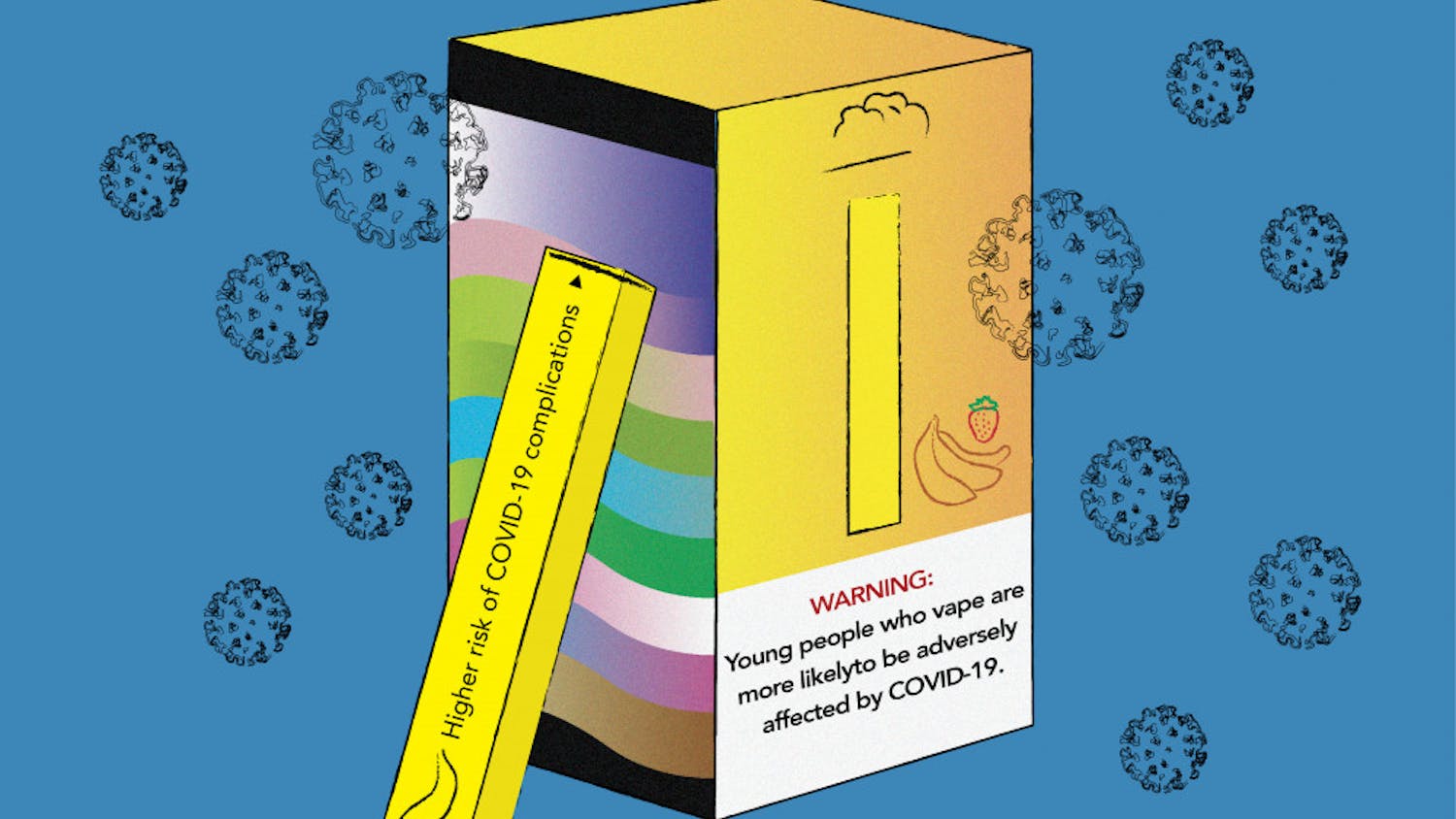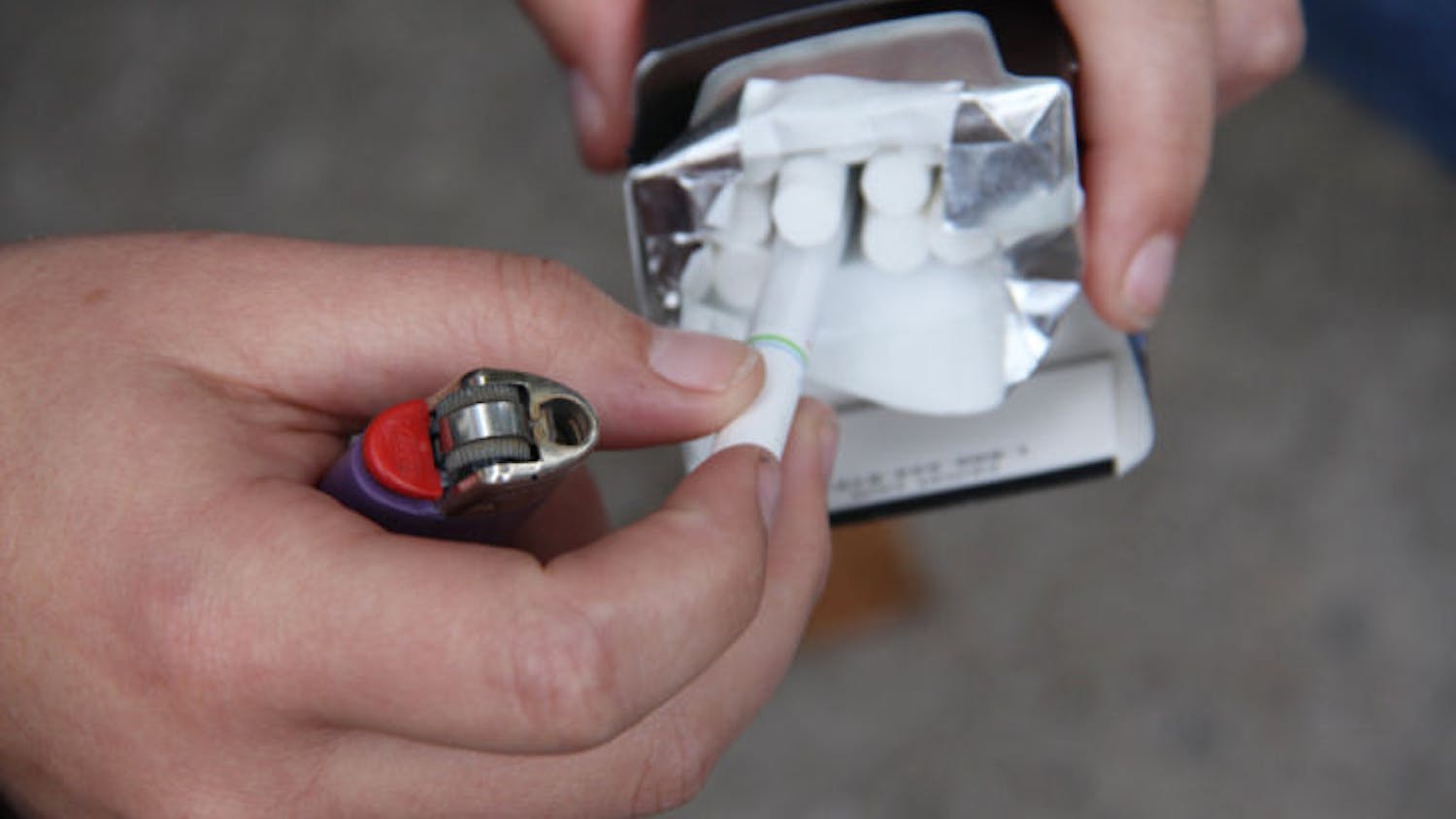The debate about whether e-cigarettes should be sold to minors in Florida is, as one might guess, a love story between Big Tobacco and a lucrative market: teens with money to burn.
Pushing the obvious aside — that minors shouldn’t have access to tobacco — fresh conflict arose this week when the American Cancer Society, the American Lung Association and the American Heart Association opposed a bill that would ban the sale of e-cigarettes to Floridians younger than 18.
The Tampa Bay Times reported that the anti-smoking organizations originally weren’t against the proposal but “became outraged when state lawmakers added language that would go farther, stripping local governments’ ability to regulate the sale of e-cigarettes and tobacco products.”
The chief operating officer of the American Lung Association of Florida blamed Big Tobacco for attempting to sneak its influence in the sale of e-cigarettes by pressuring lawmakers to change the proposed bill’s language.
And it’s not surprising: According to the Times, the National Centers for Disease Control and Prevention found that between 2011 and 2012, the number of middle and high schoolers using e-cigarettes doubled. The use of e-cigarettes among kids today isn’t some esoteric, made-up-by-TV-news trend like vodka eyeballing or drinking hand sanitizer. The reality is, more and more underage boys and girls are getting their hands on tobacco.
The language problem in the bill boils down to power. The original bill prohibiting the sale of e-cigs to kids younger than 18 didn’t restrict the power of local governments to regulate sales. Last month, a provision was added to the House version originally proposed in October to strip governments’ power when it came to regulating e-cigarette-related commerce.
Lawmakers who support the bill say it’s part of an effort to standardize tobacco-regulation practices in Florida, but no one anticipated the blowback from health organizations.
The specific part of the updated language that worries anti-smoking organizations the most is its potential to “override existing municipal ordinances,” the Times reported.
“Compounding their concern: the language applies to the sale of all tobacco products, not just electronic cigarettes,” the Times reported. “While only a handful of local governments have ordinances restricting the sales or use of electronic cigarettes, dozens have ordinances regarding the sale of tobacco products.”
The bottom line in this back-and-forth is less about concern over teens accessing tobacco and more about preserving the power of local governments in Florida. It’s reasonable that the cancer, heart and lung associations would be concerned over the shift in authority from municipalities to the state when it comes to e-cigarette sale: The tobacco industry has “long had a powerful presence in Tallahassee,” the Times reported.
Though lawmakers deny the tobacco industry’s involvement with the language change, we’re with the American cancer, heart and lung associations on this one.
Florida, keep e-cigs out of the hands of fedora-wearing, Kurt-Vonnegut-reading youths.
[A version of this editorial ran on page 6 on 4/9/2014 under the headline "Puff, puff, pass: Florida e-cig bill sparks debate"]





